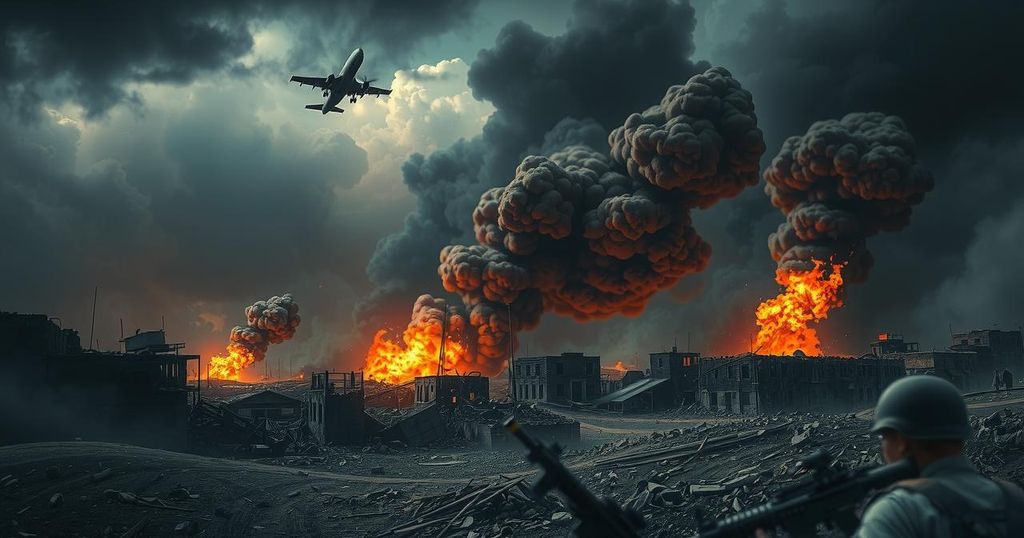Could North Koreans Working in Iran Have Been Killed or Wounded in the Weekend’s Attacks?
Concerns arise over potential North Korean casualties from U.S. strikes on Iranian nuclear sites. Experts suggest that if any North Koreans were harmed, it could provoke retaliation from Kim Jong-un. South Korea’s president is adjusting plans to manage increased tensions in the region. The implications for North Korea’s nuclear strategy are profound, highlighting the ongoing geopolitical tensions at play.
Could North Koreans have been casualties of the recent U.S. strikes on Iran’s nuclear sites? The possibility arises, especially with ongoing military cooperation between North Korea and Iran. According to Bruce Bennett, a long-time analyst at RAND Corporation, North Koreans are actively involved in assisting Iran with its nuclear weapon and missile programs. This raises concerns that if any North Koreans were to be killed or injured, North Korean leader Kim Jong-un could retaliate against the United States.
As tensions escalate, North Korea has condemned the American bombings as a breach of the UN charter. However, Pyongyang has never admitted to aiding Iran in the construction of sophisticated nuclear facilities, akin to its own. This reluctance, as Bennett points out, may stem from Kim’s fear of exposing his country’s assistance due to potential backlash from the United States.
Bennett further asserts that Kim has been bolstering North Korea’s nuclear capabilities. He suggests that, in a worst-case scenario, Kim might consider selling nuclear weapons to Iran, thereby enabling an atmospheric nuclear test. This might serve as a demonstration of the U.S. failure to halt Iran’s nuclear ambitions, exacerbating tensions in an already volatile region.
The implications of the strikes have reached South Korea as well. President Lee Jae Myung has canceled his upcoming NATO meeting in the Hague, citing the need to implement an “emergency response system” to manage escalating tensions in the Middle East. This move reflects the long-standing concern over North Korea’s potential reaction to the U.S. assault.
Sixty years since the Korean War was ignited, Kim is likely assessing how the U.S. strikes on Iran could impact his own nuclear infrastructure. Reports suggest that the 30-ton GBU-57 bunker-busters dropped on Iran’s Fordow site heighten concerns about similar attacks on North Korean facilities. The survival of North Korea’s nuclear arsenal is paramount, and any successful U.S. strike could prompt a catastrophic response from Kim.
Evans Revere, a former U.S. diplomat in Seoul, emphasizes that it is improbable a U.S. strike would lead to the complete destruction of North Korea’s nuclear warheads, which are dispersed across the country. In contrast to Iran, Revere notes, North Korea is equipped with active nuclear capabilities posing a direct threat, rather than a potential one.
Revere adds that North Korea’s advancements in nuclear weaponry and the fortification of its military installations are deliberate strategies tied to its survival. The regime has clearly prioritized its nuclear arsenal as essential to its national security strategy, reflecting the perilous dynamics in the region and the ongoing interplay between international powers.
The recent U.S. attacks on Iran’s nuclear facilities have raised significant concerns over North Korean involvement and possible casualties. Analysts suggest that such an event could provoke a serious response from Kim Jong-un, emphasizing the ongoing dangers posed by North Korea as an established nuclear power. As tensions rise in the Middle East, South Korea is taking precautionary measures in anticipation of North Korea’s potential retaliation, showcasing the complex geopolitical implications of these military actions.
Original Source: www.nysun.com




Post Comment